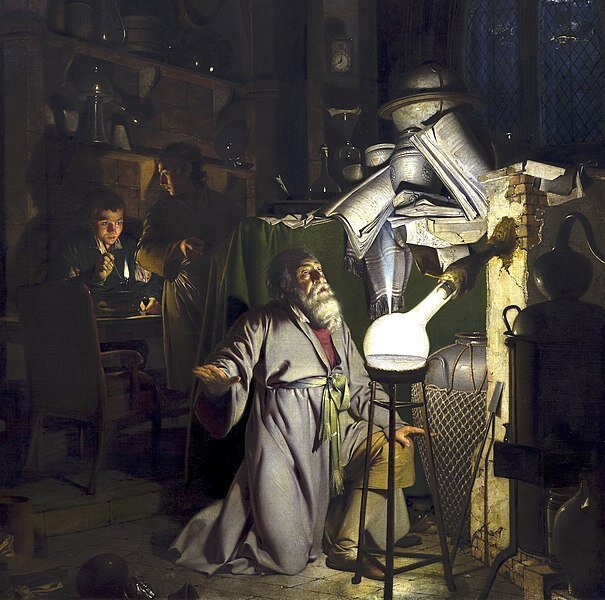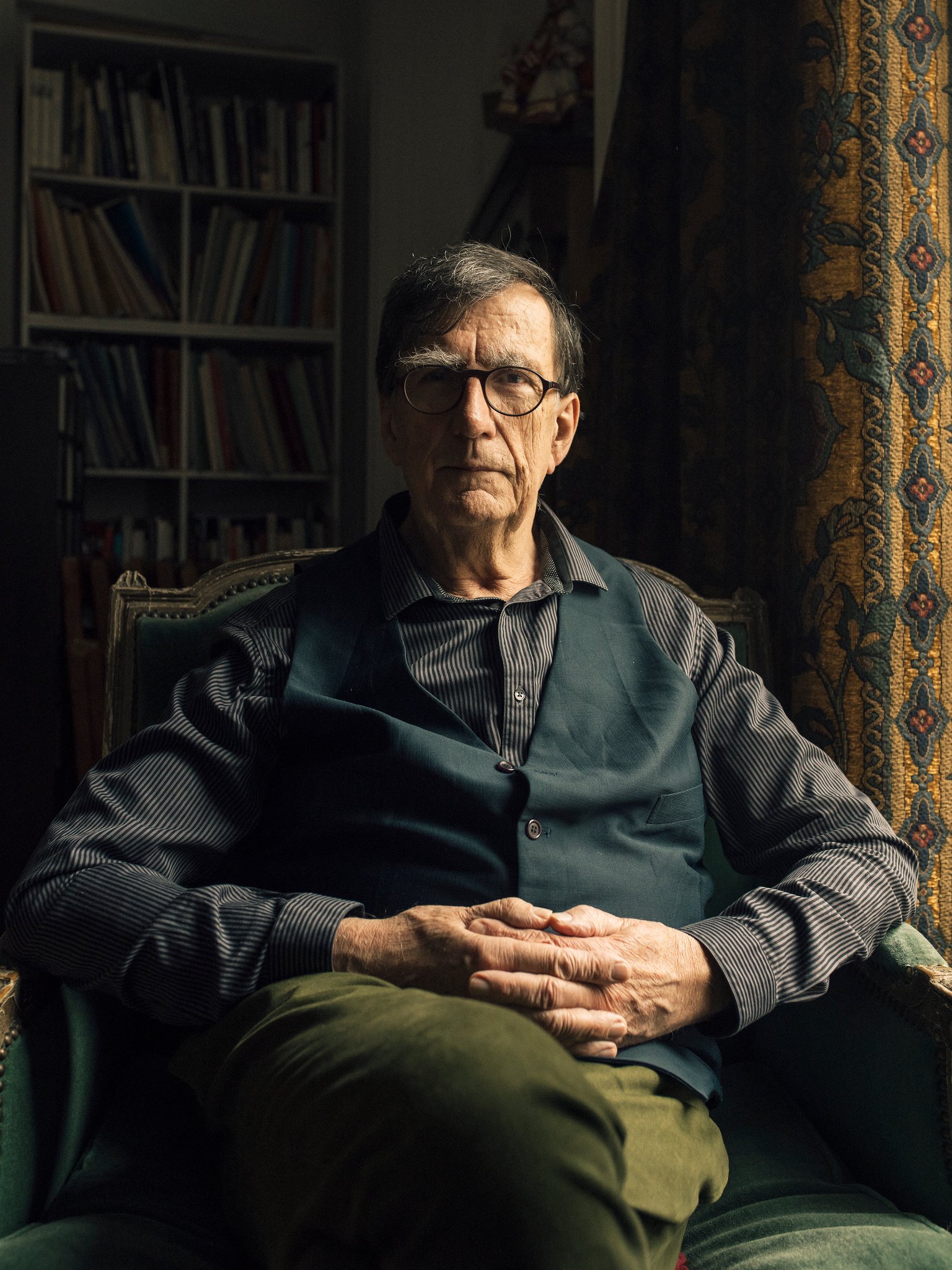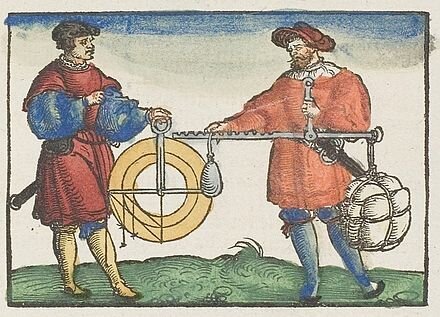The Genealogies of Modernity Journal
A Genealogist of Slavery Confronts the Archives
We can tell stories other than slavery’s violence, but does that extend dignity to enslaved, brutalized humans? Does a story ‘against the grain’ face down the thing the archive does (preserving violence and creating race)? Or does a story about the violence memorialize violence?
Maria Cecilia Ulrichson asks what Christian genealogy can learn in the archives
On the Myth of a Singular Science
Stephen Gaukroger exposes the insubstantial reasons for assuming that some meaningful theoretical construct or set of practices called "Science" underpins all the sciences..
Eileen Reeves reviews Civilization and the Culture of Science
On Background: From the Renaissance to Zoom
Like 15th Century portrait painters, we find ourselves amid an experimental period. It is unclear what the future will hold, whether it is standardized virtual bookshelves or targeted ads that suggest lipstick shades based on wall color.
Chloé Pelletier on the background to our Zoom backgrounds
Man Is a Social Organism
The body politic metaphor became proof that the immigrant and the dependent were biologically incompatible with the rest of society. The community that grew out of this interpretation shaped itself in strange, unsettling, and inhumane ways.
G. Marie Aquilina traces the history of eugenics as a distortion of the body politic
The Turn to the Body
The turn toward the body had three important effects on modern political philosophy: it naturalized security, individualized liberty, and privatized property.
Emily Davis reviews Birth of the State by Charlotte Epstein
The Housing Crisis in the Humanities
When modernity lost its modularity, it became an asset to be fought over, a territory to be controlled. Modernity became the cool neighborhood that scholars jockeyed to buy into.
Daniel Zimmerman critiques the excess of periodization
Resisting the Modern Desire for Dominance
Fratelli Tutti offers an alternative to such modern forms of domination and points to fraternal service as a way of countering its love of money, the desire that so often presents itself as development.
Trevor Williams reviews Pope Francis’s latest encyclical
A Lawless Man
Montaigne was charting new, and uniquely modern, territory. We embrace ourselves, as ourselves, and try to learn to be ourselves, rather than striving to become something other.
Erik Dempsey reviews Pierre Manent’s Montaigne: Life Without Law
Microbes and the Birth of the Modern Era
Given all the transformations wrought and about to be wrought by COVID-19, we will see much more attention paid to the role of plagues, pandemics, and pestilences in shaping human affairs.
Andrew Latham looks to microbes to explain macro-changes in history.
The Geopolitics of Nostalgia: Dante and Xi Jinping
The politics of nostalgia looks to translates the past into a near-future that is utterly inhospitable to it. It is about using the past-that-never-was to build a future-that-never-could-be.
Andrew Latham reads Dante’s Monarchia and Xi Jinping’s China Dream together.
Recipes for a Different Modernity
Using these recipes privileges cultural memory and tradition over efficiency and precision. Thus, we participate in the ritual of cooking not as a means of scientific inquiry or perfection, but to strengthen the community ties that bring us together at the table.
Alexandrea Pérez Allison on cookbooks and modernity.
We Have Always Never Been Modern
Modernity is more akin to an epistemological front, waxing and waning here and there in history, whose distribution might be unevenly spread across different human societies at any given moment.
Tim Howles expands on Bruno Latour's genealogies
Modernity in the Balance
Ideas have afterlives: they live on in subcultures that intentionally preserve them, in practices that have long lost their justification, and in our contradictions and nagging doubts.
John Buchmann offers a genealogy of balance and economics.
The Legacy of Margaret Sanger
It is interesting to imagine an alternative history, one where Sanger had received the support she sought from eugenicists. What would our feminist genealogies look like then?
G. Marie Aquilina examines Margaret Sanger’s place in feminist genealogy
A Genealogy of Progressivism: Twentieth-Century Gnostic Liberalism
The roots of the present distemper go back to the turn of the twentieth century, when figures such as John Dewey sought to delete the Christian DNA from the genome of liberalism and insert Gnostic DNA in its place.
Andrew Latham does a genealogy of Gnostic Liberalism
Mountain Modernity: Genealogies of Climbing
The future of climbing is not modern. It is post-secular, mystical, communal, and intensely embodied, with technology merely incidental.
Ryan McDermott asks: When did climbing become modern?
A Mobile Proposal
We may still take the best of what calling cards have to offer: a more robust etiquette for managing our digital, social lives on a more humane timescale.
Kirsten Hall loses her phone and looks to the 18th Century for guidance.
How We Became Superstitious Again: A Genealogical Fable
Millions waited for a new, unknown magic to save the world from a final tragedy. The occultic had returned, but no one knew how to see it anymore.
Jason Blakely imagines the rise and fall of science and the occult.
Science, Magic, and the Atom in Tomorrowland
Disney’s atom acts as an all-powerful sentient being, radioisotopes resemble the magical dust of Tinkerbell, and atomic energy emerges as the ultimate transmutation of matter that can lead to limitless health and wealth.
Christopher Fite finds a mix of power, ideology, and racism in a Disney film
Toward a Hopeful Decadence
Douthat begs us to consider the possibilities that we reached for in the past, less out of nostalgia, and more as inspiration: a cry of ‘Why not?’ that can lift us beyond screens, comfort, and deadlock toward a common goal.
Michael J. Nevadomski reviews Ross Douthat’s The Decadent Society.























